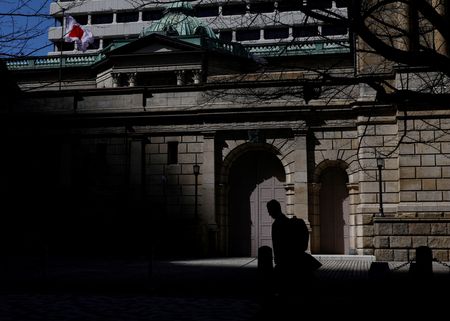ZURICH (Reuters) -The European Central Bank could begin increasing interest rates before ending its bond purchasing programme, ECB policymaker Robert Holzmann said, challenging the bank’s long-held view on the sequence of its upcoming policy moves.
With inflation hitting fresh record highs in recent months, the ECB recently walked back on a pledge not to raise rates this year but has long maintained that ending bond purchases comes first, before any interest rate increase.
This stance on “sequencing” has not been challenged so far and all policymakers speaking in public have accepted the order, focusing their discussion on when bond purchases, known as quantitative easing, should end.
“When it comes to the interest rate outlook, the ECB has always signalled that an interest rate hike should not take place until shortly after the bond purchases have ended,” Holzmann said in an interview with Swiss newspaper NZZ.
“But it would also be possible to take a first interest rate step in the summer before the end of the purchases and a second at the end of the year. I would favour that,” the hawkish head of Austria’s central bank said in remarks published on Wednesday.
The argument in favour of the ECB’s sequencing is that a rate hike before the end of bond buys would mean the ECB is stepping on both the accelerator and the brake at the same time.
It would also flatten the yield curve, hurting bank profitability, as they utilize the gap between short and long-term borrowing costs.
The ECB will next meet on March 10 and economists expect the sequencing to be upheld. Policymakers are also expected to signal an end to bond purchases in the third quarter, opening the door to a rate hike before the close of the year.
Calling an exit from the negative interest rate era an “important signal” to society and markets, Holzmann said he would like to see two interest rate increases by end-2022 or early 2023.
“Some of my colleagues would perhaps be even more progressive here, while others would be more cautious,” Holzmann said.
He said a policy rate of around 1.5% would be a benchmark for neutral monetary policy.
“I think that a key interest rate of very roughly 1.5% in 2024 could be realistic, although that may well shift forward or backward somewhat,” he said.
ECB policymakers will meet in an informal gathering in Paris on Thursday and hold their next policy meeting on March 10.
Economists polled by Reuters now expect policymakers to end bond purchases in the third quarter of the year while the first rate hike could come in either the third or fourth quarter.
(Reporting by Brenna Hughes Neghaiwi; Editing by Michael Shields & Shri Navaratnam)










